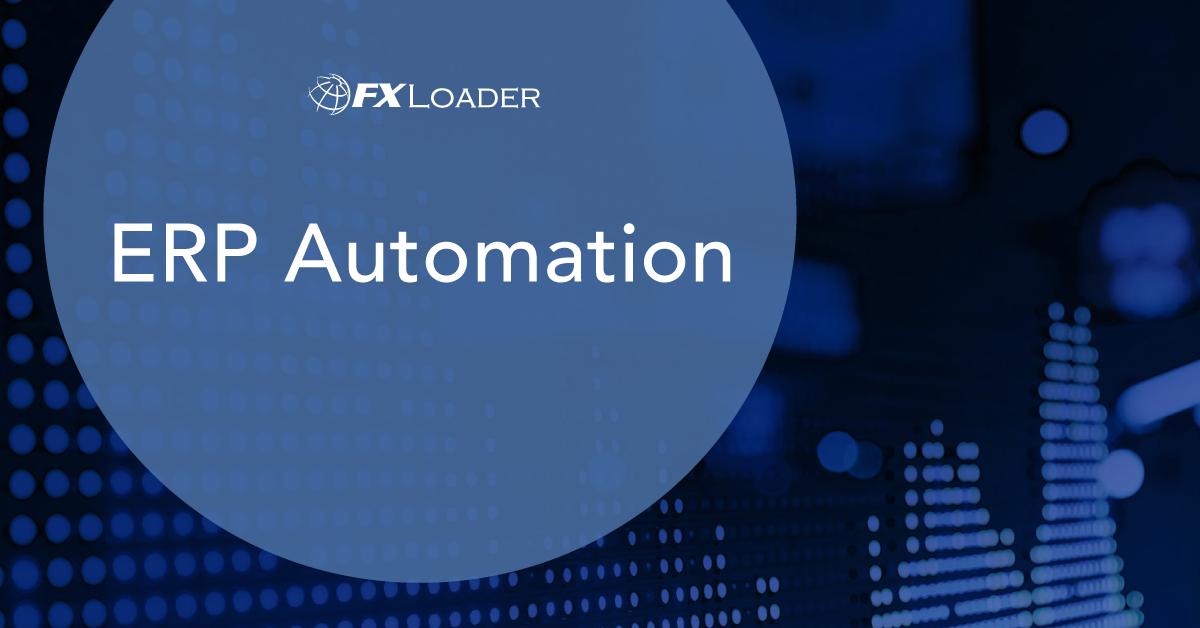ERP Automation

At FXLoader we work with tier-1 ERPs, the two most popular being Oracle ERP Cloud and Oracle E-Business Suite, which are also where I spent my previous life as a consultant.
These global ERPs are used by the largest companies and so need to be able to cope with huge transaction volumes, which in turn needs a high level of automation.
Why Automate Processes
The most obvious reason is to save time for whoever is typing data into the system manually. If you have 10,000 invoices to enter every day, it just isn’t practical to have a team keying them in.
However, the accuracy of data is often an even greater concern. An automated process repeats in a reliable fashion and is not subject to typing errors. So as long as there are proper error capture processes in place, you can be sure the data has been loaded correctly. For this reason, automated processes are preferred when assessing controls, e.g. in SOX compliance.
What do Oracle ERPs Offer?
Generally, processes within an ERP are highly automated. For example, transferring accounting transactions for Payables invoices and payments to the General Ledger.
For loading data into the ERP, Oracle generally provides mechanisms or interfaces to allow you plug in to sources of data, requiring varying degrees of development to automate fully. In Oracle E-Business Suite these often take the form of ‘open interface’ tables and processes, where in Oracle ERP Cloud the access point is usually via a web service/API.
There are also semi-automated processes such as WebADI/ADFDI which load data from spreadsheets. These provide efficiency and some protection from errors (copy and paste is less risky than manual typing) but not to the same level as a full automated process.
To learn more about Oracle ERP Automation, register for our upcoming webinar.
How About RPA?
I don’t have much experience of Robotic Process Automation (RPA) but the principle is usually an automated process that replicates a user typing in data. I was a big fan of the Dataload tool (both classic and professional versions) used with Oracle E-Business Suite in my past.
It seems to me this is useful where there is no alternative, but a fully automated ‘background’ load will be more stable and efficient.